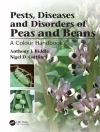A groundbreaking book that addresses the science that underpins organic agriculture and horticulture and its impact upon the management of organic systems
With contributions from noted experts in the field, Organic Agriculture explores the cultural context of food production and examines the historical aspects, economic implications, and key scientific elements that underpin organic crop production. The book shows how a science-based approach to organic farming is grounded in history and elements of the social sciences as well as the more traditional areas of physics, chemistry and biology.
Organic Agriculture offers a detailed explanation of the differences between organic systems and other approaches, answering questions about crop production and protection, crop rotations, soil health, biodiversity and the use of genetic resources. The authors identify current gaps in our understanding of the topic and discuss how organic farming research may be better accomplished in the future. This important book:
* Explores the science that underpins organic farming
* Contains illustrative case studies from around the world
* Examines organic agriculture’s philosophical roots and its socio-economic context
Written for scientists and students of agriculture and horticulture, this book covers the issues linked to the use of science by organic producers and identifies key elements in the production of food.
Tabella dei contenuti
List of contributors
Preface
Ch. 1 Science and organic agriculture: An introduction
D Atkinson & CA Watson
Ch. 2 Science, research and organic farming
L Woodward
Ch. 3 Framing and farming: putting organics in a societal context
P Ritchie
Ch. 4 Soil health and its management for organic farming
EA Stockdale, AE Edwards & CA Watson
Ch. 5 Cropping Systems and Crop Choice
R Walker
Ch. 6 Crop Rotations: The Core of Organic Production
D Atkinson &R Walker
Ch. 7 What can organic farming contribute to biodiversity restoration?
RE Feber, PJ Johnson & DW Macdonald
Ch. 8 Optimising crop production in organic systems
D Atkinson & R Walker
Ch. 9 Crop production: Meeting the nutrient needs
D Atkinson & R Walker
Ch. 10 Crop attributes facilitating use of soil resources
D Atkinson
Ch. 11 Mycorrhizal activity, resource and microbial cycles
D Atkinson
Ch. 12 Crop Protection and Food Quality: Challenges and answers
D Atkinson & R Walker
Ch. 13 Plant breeding and genetics in organic agriculture
TF Doring & MS Wolfe
Chapter 14 Exploring the systems concept in contemporary organic farming research
C A Watson & B Pearce
Ch. 15 Science based organic agriculture: Some conclusions
D Atkinson& CA Watson
Index
Circa l’autore
ABOUT THE EDITORS
DAVID ATKINSON was formerly Vice Principal at the Scottish Agricultural College and Chair of Falkland Rural Enterprises, an organic farming company. He continues to study the ethical implications of emerging biotechnologies.
CHRISTINE A. WATSON leads soil science research at SRUC. She has extensive experience of research in organic farming and is involved in managing and teaching SRUC’s postgraduate course in Organic Farming.












